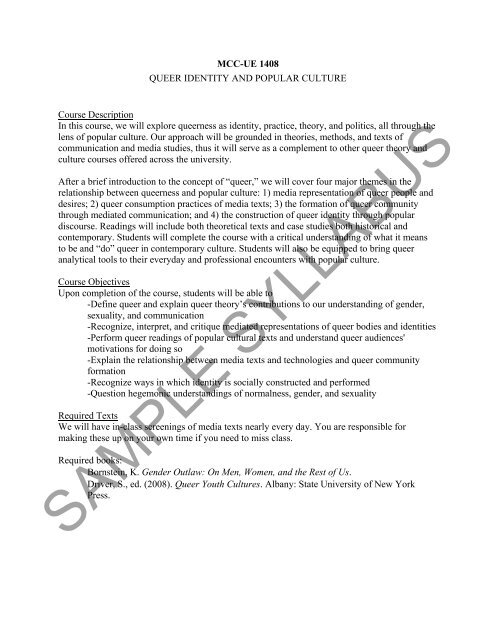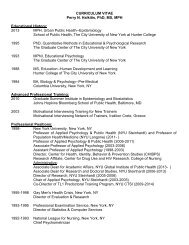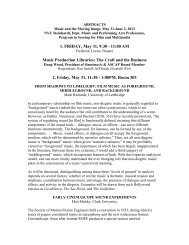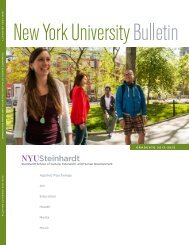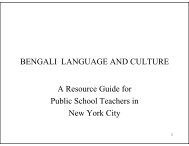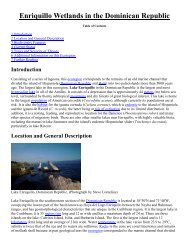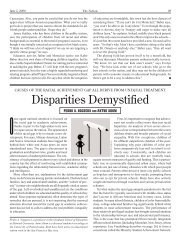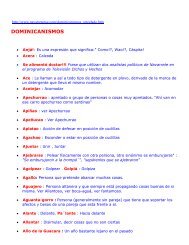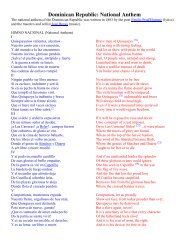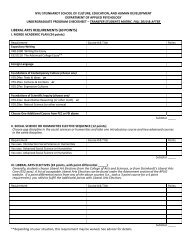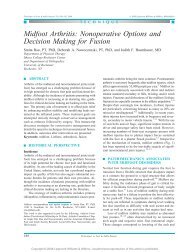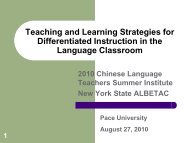MCC-UE 1408 QUEER IDENTITY AND POPULAR ... - NYU Steinhardt
MCC-UE 1408 QUEER IDENTITY AND POPULAR ... - NYU Steinhardt
MCC-UE 1408 QUEER IDENTITY AND POPULAR ... - NYU Steinhardt
You also want an ePaper? Increase the reach of your titles
YUMPU automatically turns print PDFs into web optimized ePapers that Google loves.
<strong>MCC</strong>-<strong>UE</strong> <strong>1408</strong><br />
Q<strong>UE</strong>ER <strong>IDENTITY</strong> <strong>AND</strong> <strong>POPULAR</strong> CULTURE<br />
Course Description<br />
In this course, we will explore queerness as identity, practice, theory, and politics, all through the<br />
lens of popular culture. Our approach will be grounded in theories, methods, and texts of<br />
communication and media studies, thus it will serve as a complement to other queer theory and<br />
culture courses offered across the university.<br />
After a brief introduction to the concept of “queer,” we will cover four major themes in the<br />
relationship between queerness and popular culture: 1) media representation of queer people and<br />
desires; 2) queer consumption practices of media texts; 3) the formation of queer community<br />
through mediated communication; and 4) the construction of queer identity through popular<br />
discourse. Readings will include both theoretical texts and case studies both historical and<br />
contemporary. Students will complete the course with a critical understanding of what it means<br />
to be and “do” queer in contemporary culture. Students will also be equipped to bring queer<br />
analytical tools to their everyday and professional encounters with popular culture.<br />
Course Objectives<br />
Upon completion of the course, students will be able to<br />
-Define queer and explain queer theory’s contributions to our understanding of gender,<br />
sexuality, and communication<br />
-Recognize, interpret, and critique mediated representations of queer bodies and identities<br />
-Perform queer readings of popular cultural texts and understand queer audiences'<br />
motivations for doing so<br />
-Explain the relationship between media texts and technologies and queer community<br />
formation<br />
-Recognize ways in which identity is socially constructed and performed<br />
-Question hegemonic understandings of normalness, gender, and sexuality<br />
Required Texts<br />
We will have in-class screenings of media texts nearly every day. You are responsible for<br />
making these up on your own time if you need to miss class.<br />
Required books:<br />
Bornstein, K. Gender Outlaw: On Men, Women, and the Rest of Us.<br />
Driver, S., ed. (2008). Queer Youth Cultures. Albany: State University of New York<br />
Press.
All other required readings will be provided as PDFs during the first week of the term.<br />
The following books are suggested reading. You will need to purchase at least one of them to<br />
review for your first paper assignment. (We will be reading excerpts from all of them – the<br />
required excerpts will be provided as PDFs.)<br />
Butler, J. (1990). Gender Trouble. New York: Routledge.<br />
Chauncey, G. (1994). Gay New York: Gender, Urban Culture, and the Making of the Gay<br />
Male World, 1890-1940. New York: BasicBooks.<br />
Doty, A. (1993). Making things perfectly queer: Interpreting Mass Culture. Minneapolis:<br />
University of Minnesota Press.<br />
Gamson, J. (1998). Freaks talk back: Tabloid talk shows and sexual nonconformity.<br />
Chicago: University of Chicago Press.<br />
Garber, M. (1992). Vested Interests: Cross-Dressing and Cultural Anxiety. New York:<br />
Routledge.<br />
Gray, M. L. (2009). Out in the country: Youth, media, and queer visibility in rural<br />
America. New York: New York University Press.<br />
Halberstam, J. (1998a). Female masculinity. Durham: Duke University Press.<br />
Manalansan, M.F. (2003). Global Divas: Filipino Gay Men in the Diaspora. Durham:<br />
Duke University Press.<br />
Piontek, T. (2006). Queering Gay and Lesbian Studies. Urbana: University of Illinois<br />
Press.<br />
Rodriguez, J. M. (2003) Queer Latinidad: Identity Practices, Discursive Spaces. New<br />
York: New York University Press.<br />
Sedgwick, E. (1990). Epistemology of the Closet. New York: Penguin.<br />
Sender, K. Business not politics: The making of the gay market. New York: Columbia<br />
University Press.<br />
Tongson, K. (2011). Relocations: Queer suburban imaginaries. New York: New York<br />
University Press.<br />
Warner, M. (1999). The trouble with normal: Sex, Politics, and the Ethics of Queer Life.<br />
Cambridge: Harvard University Press.<br />
Assignments<br />
Blog Essays (20%)<br />
Journal (10%)<br />
Book Review (15%)<br />
Second Paper/Project (30%)<br />
Final Exam (15%)<br />
Attendance/Participation (10%)<br />
Blog Essays: There will be 4 required short essays distributed throughout the semester in which<br />
you are to respond to a prompt provided by the instructor and post to the class blog (the Home<br />
page) as a comment on the prompt. These will give you the opportunity to apply concepts and<br />
theories from the course to your everyday experience outside the classroom and to share your<br />
observations publicly. Your response should be at least 2 substantive paragraphs long. You are
encouraged to respond directly to your classmates' comments and to use the blog space to engage<br />
in productive dialogue outside the classroom.<br />
Journals: Throughout the term I will ask you to write personal reflections on the material from<br />
the course. You will submit them privately via the form provided on the Home page. These<br />
reflections can be brief and informal – as long as you write a thoughtful response to the question<br />
you will receive full credit.<br />
Book Review: You will write a 3-5 page book review based on your choice of book related to<br />
the course (suggested titles are listed on this syllabus). More details on the assignment will be<br />
announced in class.<br />
Second Paper/Project: For your second assignment, you will have a choice from a variety of<br />
paper/project ideas, which we will discuss together. You will submit a proposal outlining your<br />
project, which you must receive approval on before submitting the final work. You are<br />
encouraged to approach the project creatively and to utilize multimedia formats in your work.<br />
Final Exam: The final will be an essay-format, take-home exam. It will require you to<br />
demonstrate understanding of the readings and topics covered throughout the semester, and to<br />
synthesize ideas from across the course. Possible essay questions will be distributed on the last<br />
day of classes.<br />
Participation/Attendance: All students are expected to actively participate in class sessions.<br />
This means coming to class prepared by having done all the readings, bringing assigned readings<br />
to class, paying attention during all lectures and screenings, asking thoughtful questions, and<br />
sharing personal insights when appropriate. Your participation grade is assessed above and<br />
beyond your attendance; just showing up to class will not earn you any participation points.<br />
Spending class time on your laptop or cell phone engaged in non-class activities will negatively<br />
affect your participation grade. You may think I don’t notice, but I do. You are encouraged to<br />
check in with me throughout the semester to find out how you are doing on participation, so that<br />
you are not surprised when your final grade comes. You are allowed 2 unexcused absences, no<br />
questions asked. After that, any absences without prior written approval will result in a onepercent<br />
reduction in your final grade (per absence).<br />
Course Policies<br />
Lateness is generally unacceptable, as it places extra burden on me to keep track of your<br />
assignments above and beyond what I do for the other students in the class. It is also unfair to the<br />
other students, who are each making their own sacrifices and commitments in order to complete<br />
work on time. If you have a true hardship in completing an assignment on time, you must seek<br />
written approval from me to extend the due date for a reduced grade. If you fail to turn in an<br />
assignment on the due date, and have not communicated with me in advance (this means you<br />
must receive a reply from me acknowledging that I have received your communication), you will<br />
receive a zero on the assignment.
Students with physical or learning disabilities are required to register with the Moses Center for<br />
Students with Disabilities, 726 Broadway, 2nd Floor, (212-998-4980) and are required to present<br />
a letter from the Center to the instructor at the start of the semester in order to be considered for<br />
appropriate accommodation.<br />
http://www.nyu.edu/life/safety-health-andwellness/students-with-disabilities.html<br />
ACADEMIC INTEGRITY <strong>AND</strong> PLAGIARISM<br />
I take academic integrity extremely seriously. When you turn in work that is not your own, you<br />
communicate to me that you are not serious about this course and I will adjust your grade to<br />
reflect that. If I suspect that you have submitted dishonest work, you will receive a zero for the<br />
assignment. You may also fail the course and the case may be forwarded to department and<br />
university administrators. If you have any doubts as to whether work you plan to submit violates<br />
the standards of academic integrity, please ask me in advance. It is better to have an honest<br />
question cleared up before the fact than to risk failure and disciplinary action.<br />
All students must be familiar with the <strong>NYU</strong> <strong>Steinhardt</strong> School definition of plagiarism and the<br />
policy on academic integrity. The <strong>NYU</strong> <strong>Steinhardt</strong> Statement on Academic Integrity is available<br />
at: http://steinhardt.nyu.edu/policies/academic_integrity<br />
The <strong>Steinhardt</strong> School defines plagiarism as follows:<br />
Plagiarism, one of the gravest forms of academic dishonesty in university life, whether<br />
intended or not, is academic fraud. In a community of scholars, whose members are<br />
teaching, learning and discovering knowledge, plagiarism cannot be tolerated.<br />
Plagiarism is failure to properly assign authorship to a paper, a document, an oral<br />
presentation, a musical score and/or other materials, which are not your original work.<br />
You plagiarize when, without proper attribution, you do any of the following:<br />
• Copy verbatim from a book, an article or other media;<br />
• Download documents from the Internet;<br />
• Purchase documents;<br />
• Report from other's oral work;<br />
• Paraphrase or restate someone else's facts, analysis and/or conclusions;<br />
• Copy directly from a classmate or allow a classmate to copy from you.<br />
Evaluation Criteria<br />
A = Excellent<br />
This work demonstrates comprehensive and solid understanding of course material and presents<br />
thoughtful interpretations, well-focused and original insights, and well-reasoned analysis. “A’<br />
work includes skillful use of source materials and illuminating examples and illustrations. “A”<br />
work is fluent, thorough and shows some creative flair.<br />
B = Good<br />
This work demonstrates a complete and accurate understanding of course material, presenting a<br />
reasonable degree of insight and broad level of analysis. Work reflects competence, but stays at a<br />
general or predictable level of understanding. Source material, along with examples and<br />
illustrations, are used appropriately. “B” work is reasonable, clear, appropriate and complete.<br />
C = Adequate/Fair
This work demonstrates a basic understanding of course material but remains incomplete,<br />
superficial or expresses some important errors or weaknesses. Source material may be used<br />
inadequately or somewhat inappropriately. The work may lack concrete, specific examples and<br />
illustrations and may be hard to follow or vague.<br />
D = Unsatisfactory<br />
This work demonstrates a serious lack of understanding and fails to demonstrate the most<br />
rudimentary elements of the course assignment. Sources may be used inappropriately or not at<br />
all. The work may be inarticulate or extremely difficult to read.<br />
A = 94-100 A- = 90-93 B+ = 87-89 B = 84-86 B- = 80-83 C+ = 77-79<br />
C = 74-76 C- = 70-73 D+ = 67-69 D = 64-66 F = 63 and below<br />
Other Resources for Students<br />
The Writing Center<br />
http://www.nyu.edu/cas/ewp/html/writing_center.html<br />
411 Lafayette, 3rd Floor, New York, NY 10003<br />
212 998-8866<br />
mailto:writingcenter@nyu.eduwritingcenter@nyu.edu<br />
Hours: Monday to Thursday, 10 am to 8 pm; Friday, 11 am to 4 pm<br />
<strong>NYU</strong> Wellness Exchange<br />
http://www.nyu.edu/999<br />
212-443-9999<br />
The Wellness Exchange is the constellation of the University's expanded and enhanced programs<br />
and services designed to address the overall health and mental health needs of our students.<br />
Office of Lesbian, Gay, Bisexual, and Transgender Student Services<br />
Kimmel Center for University Life<br />
60 Washington Square South, Suite 602<br />
212-998-4424<br />
The Office of Lesbian, Gay, Bisexual, and Transgender (LGBT) Student Services at New York<br />
University exists to create campus environments that are inclusive and supportive of student<br />
diversity in the areas of sexual orientation and gender identity/expression. The LGBT office<br />
offers many programs in the areas of health and wellness, sponsoring/cosponsoring the LGBT<br />
Health Fair, AIDS Awareness Week, and self-defense workshops. Throughout the year, the<br />
office offers programs and discussions on topics such as relationships, parenting, marriage, safer<br />
sex, drugs and alcohol, stress management, body image, and dating.
Course Schedule<br />
Week 1: Introduction/Defining “Queer”<br />
1/23: No readings – introductions<br />
1/25: Bornstein, excerpts from Gender Outlaw<br />
"Transgender Style" (3-4)<br />
"The Hard Part" (7-14)<br />
"The First Question" (101-111)<br />
"The Other Questions" (113-140)<br />
Smith, "How I Became a Queer Heterosexual" http://www.culturalresearch.org/qhet.html<br />
Journal 1 due by Sunday at 8pm<br />
Week 2: Understanding Queer Theory<br />
1/30: Jagose, excerpts from Queer Theory: An Introduction<br />
"Introduction" (1-6)<br />
"Queer" (72-100)<br />
"Afterword" (127-132)<br />
2/1: Gauntlett, "Queer Theory and Fluid Identities" (145-163)<br />
Suggested: Sedgwick, "Axiomatic" from Epistemology of the Closet (1-63)<br />
Butler, "Preface" and "Subjects of Sex/Gender/Desire" from Gender<br />
Trouble (-33)<br />
Blog 1 due Sunday at 8pm<br />
Week 3: Representation: Queer Visibility<br />
2/6: Gross, excerpts from Up from Invisibility<br />
"The Mediated Society" (1-20)<br />
Suggested: "Hollywood's Gay Nineties" (156-183)<br />
"Beyond Prime Time" (184-207)<br />
"Morning Papers, Afternoon Soaps" (208-220)<br />
2/8: Joyrich, "Epistemology of the Console" (15-47)<br />
Week 4: Representation: Queer Visibility<br />
2/13: Gamson, excerpts from Freaks Talk Back<br />
"Why I Love Trash" (2-27)<br />
“Truths Told in Lies” (66-105)<br />
2/15: Sender, “Queens for a Day” (131-151)<br />
Ron Becker, "Guy Love: A Queer Straight Masculinity for a Post-Closet Era?" (121-140)<br />
Journal 2 due by Sunday at 8pm<br />
Week 5: Representation: Narratives of Queer Identity<br />
2/20: No class<br />
2/22: Halberstam, “An Introduction to Female Masculinity: Masculinity without Men” from<br />
Female Masculinity (1-43)<br />
Portwood-Stacer, "Queering the Trans Narrative on Television" (1-15)<br />
Blog 2 due Sunday at 8pm
Week 6: Representation/Consumption: Targeting Queer Audiences<br />
2/27: Gross, "A Niche of Our Own" from Up From Invisibility (233-251)<br />
Suggested: Sender, “Selling America’s Most Affluent Minority” from Business Not<br />
Politics (139-173)<br />
2/29: Clark, “Commodity Lesbianism” (181-201)<br />
Hennessey, “Queer Visibility in Commodity Culture” (31-76)<br />
Journal 3 due by Sunday at 8pm<br />
Week 7: Consumption: Queering the Straight Text<br />
3/5: Doty, excerpts from Making Things Perfectly Queer<br />
“What Makes Queerness Most” (xi-xix)<br />
“There’s Something Queer Here” (1-16)<br />
“I Love Laverne and Shirley” (39-62)<br />
Lipton, “Queer Readings of Popular Culture”, in Queer Youth Cultures (163-179)<br />
3/7: Miller, "Masculinity and Male Intimacy in Nineties Sitcoms: Seinfeld and the Ironic<br />
Dismissal" (147-159)<br />
Book Review 1 due<br />
Spring Recess 3/12-3/17<br />
Week 8: Consumption/Community: Queer Fandom<br />
3/19: Driver, Queer Youth Cultures (read any 3 essays except those by Lipton and Ritchie)<br />
3/21: TBA<br />
Journal 4 due by Sunday at 8pm<br />
Week 9: Community: Queer Space<br />
3/26: Chauncey, “Introduction” from Gay New York (1-29)<br />
D’Emilio, “Capitalism and Gay Identity” (467-476)<br />
3/28: Polchin, “Having Something to Wear: The Landscape of Identity on Christopher Street”<br />
(381-390)<br />
Suggested: Tongson, "Relocations: Queer Suburban Imaginaries" (1-27)<br />
Gray, "From Wal-Mart to Websites: Out in Public" (87-118)<br />
Second Paper/Project Assigned<br />
Week 10: Community: Queer Publics<br />
4/2: Berlant and Freeman, “Queer Nationality” (193-229)<br />
Sycamore, “Gay Shame” (268-295)<br />
Suggested: Berlant and Warner, “Sex in Public" (547-566)<br />
4/4: Warner, “What’s Wrong With Normal?” from The Trouble with Normal (41-80)<br />
Rodriguez, excerpts from Queer Latinidad<br />
“Divas, Atrevidas, y Entendidas: An Introduction to Identities (5-36, focus on 23-<br />
31)<br />
“’Welcome to the Global Stage’: Confessions of a Latina Cyber-Slut” (114-152)<br />
Blog 3 due Sunday at 8pm
Week 11: Community/Identity: Queer Subcultures<br />
4/9: Manalansan, excerpts from Global Divas<br />
"Introduction: Points of Departure" (1-20)<br />
"'Out There': The Topography of Race and Desire in the Global City" (62-88)<br />
4/11: Pyle and Klein, "Fat. Hairy. Sexy: Contesting Standards of Beauty and Sexuality in the<br />
Gay Community" (78-87)<br />
Journal 5 (Paper/Project proposal) due by Sunday at 8pm<br />
Week 12: Identity: Performing Queerness<br />
4/16: Williams, “Gay by Design, Or a Lifestyle Choice?” (1-3)<br />
Bennett, “In Defense of Gaydar” (408-425)<br />
Piontek, “Queer Alternatives to Men and Women” from Queering Gay and Lesbian<br />
Studies (67-80)<br />
4/18: Garber, "Clothes Make the Man" from Vested Interests (1-17)<br />
Week 13: Identity: Practicing Queerness<br />
4/23: Piontek, “Redrawing the Map of the Gender-and-Sex Landscape” from Queering Gay<br />
and Lesbian Studies (81-94)<br />
Suggested: Rubin, "Thinking Sex" (143-178)<br />
4/25: Ritchie, "Principles of Engagement" (261-278)<br />
Portwood-Stacer, "Constructing Anarchist Sexuality" (479-493)<br />
Second Paper/Project due<br />
Week 14: Identity: Making Trouble?<br />
4/30: Seidman, “Identity and politics in a ‘postmodern’ gay culture” (105-42)<br />
Jakobsen, “Queer Is? Queer Does?” (511-536)<br />
5/2: Davis, “Situating ‘Fluidity’” (97-130)<br />
Schlichter, “Queer at last?” (543-564)<br />
Blog 4 due Sunday at 8pm<br />
Week 15: Wrap-up<br />
5/7: Catch up on all readings for final exam review<br />
Final Exam questions distributed in class<br />
5/9: Final Exam due at 4pm


